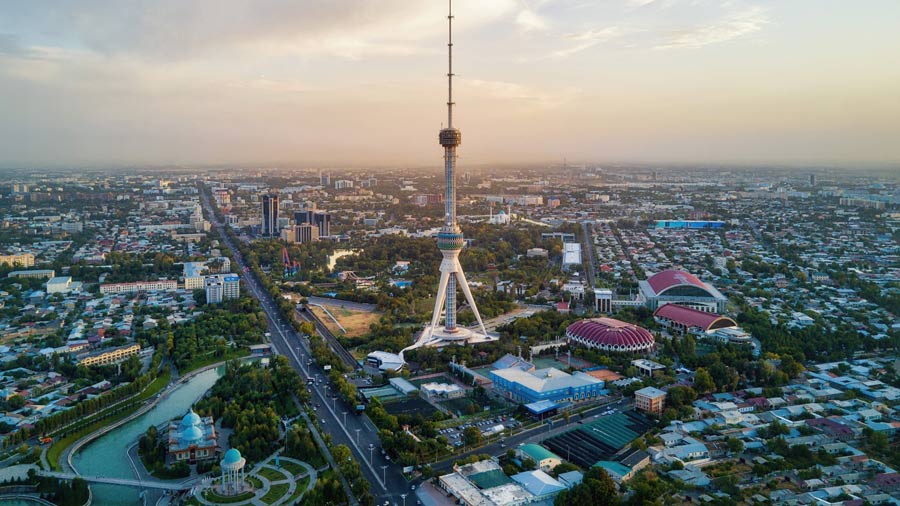Uzbekistan Offers PPP Deals To Foreign Investors In Banking & Infrastructure
 The newly reformed and open approach by Uzbekistan to foreign investment has taken another step forward with Uzbek President Shavkat Mirziyoyev signing a decree worth US$1.66 billion and covering 15 projects to foreign investors under public-private partnership (PPP) deals.
The newly reformed and open approach by Uzbekistan to foreign investment has taken another step forward with Uzbek President Shavkat Mirziyoyev signing a decree worth US$1.66 billion and covering 15 projects to foreign investors under public-private partnership (PPP) deals.
Included in the PPP offerings are the modernization of Tashkent airport, a US$470m project, and the construction of a US$600m 100MW power station near Samarkand. There are smaller projects to build toll roads, update other regional airports and improve municipal rubbish collection systems.
Since Mirziyoyev came to power in September 2016 he has tried to woo foreign investors by scrapping the Black Market currency exchange, easing currency export restrictions and dropping visa requirements. Foreign investors have been lining up to enter Uzbekistan and the PPP offerings will give them another chance to pitch for projects.
It also comes a few days after the government also announced that it would sell off stakes in three banks – Uzpromstroybank, Alokabank and Asia Alliance Bank. The state will sell off stakes of 10% in Uzpromstroybank and Asia Alliance Bank through IPOs on the local stock market, and a 10% stake in Alokabank through an SPO.
Uzpromstroybank has been a stable partner of the Asian Development Bank since 2013. It has financed trade transactions worth $25 million to support the development of the country’s horticulture sector, and has been expanding its correspondent bank network in Asia, including Japan. Alokabank is more client service driven and provides both retail and corporate banking services. The Asia Alliance Bank is larger still, provides a wide range of banking services to private and corporate clients in Uzbekistan. The Bank has strong positions in all major markets of banking services – lending, operations with securities, foreign exchange, plastic cards, cash management services, market of resources for businesses and individuals and has operations elsewhere in Asia, including Hong Kong.
Uzbekistan said in November last year that it was working on developing a strategy to sell off stakes in its banks. The banking sector in Uzbekistan is still underdeveloped and most ordinary Uzbeks still prefer to keep their savings at home rather than in a bank, while ATMs are still a novelty.
Chris Devonshire-Ellis of Dezan Shira & Associates says “Just as the opening up of China 30 years ago spearheaded a continuing boom throughout Asia, the Belt & Road Initiative is having a similar impact across Central Asia and beyond. Uzbekistan is a primary model for how reform and regional interconnectivity can have huge impacts on other emerging countries, and provide encouragement and modelling for them to get their own reforms and developments under way. The soft impact of the Belt & Road can be recognized in part by the influence it is having on countries such as Uzbekistan, and this is encouraging.”
About Us
Silk Road Briefing is produced by Dezan Shira & Associates. Chris Devonshire-Ellis is the practice Chairman. The firm has 26 years of China operations with offices throughout China, Asia and Europe. Please refer to our Belt & Road desk or visit our website at www.dezshira.com for further information.
 Related Reading:
Related Reading:
![]() Uzbekistan Re-Energizing as Central Asia’s Traditional Hub for the Silk Belt and Road
Uzbekistan Re-Energizing as Central Asia’s Traditional Hub for the Silk Belt and Road
![]() Uzbekistan, Tajikistan Set to Restore Normal Relations, Offering China Easier Access to Central Asia via Xinjiang
Uzbekistan, Tajikistan Set to Restore Normal Relations, Offering China Easier Access to Central Asia via Xinjiang





